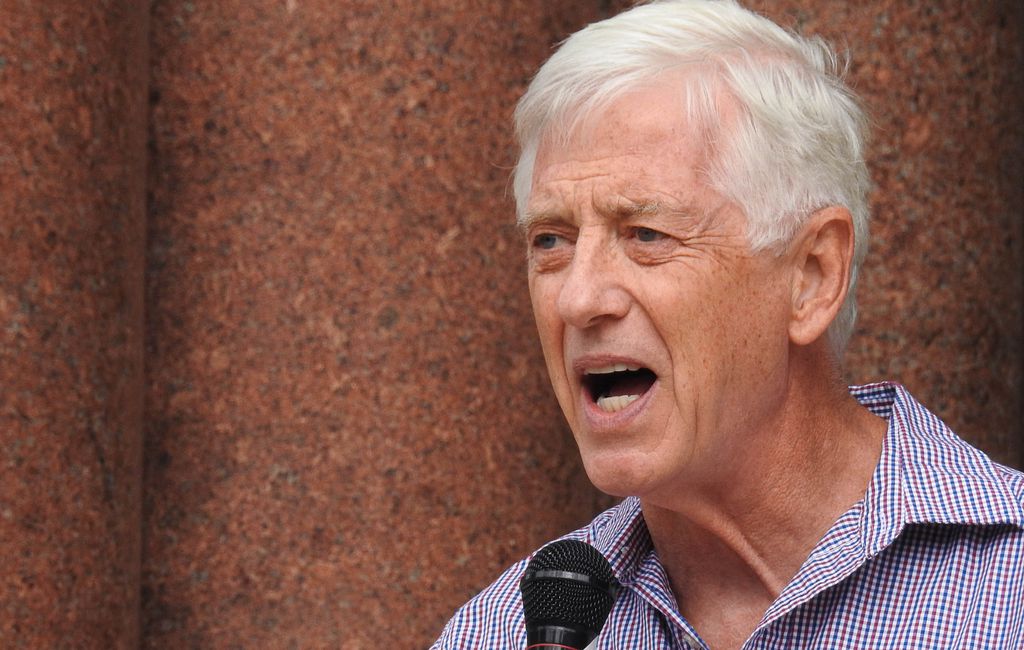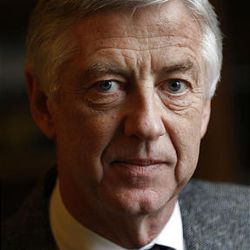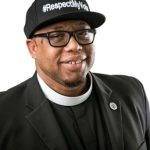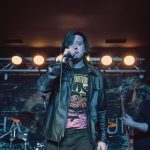The candidate for the Justice Party in the 2016 presidential election.
Basima Farhat is the host.
Scheduled for 6-7pm PST/9-10pm ET on February 28, 2012 Listen live on BBSRadio, or join us in with us virtual auditorium if you’d prefer!
He has been birthed through Logan, Utah in 1951, and he is known as “Rocky.” Rocky’s great-grandfather, a Norwegian migrants carpenter, started the local lumberyard where his mom and dad, Roy & Grace Anderson, both worked.
When it came to the Andersons’ quality of life in Logan, they certainly weren’t affluent. They enjoyed Logan’s natural beauty, charm & security in their modest Maple Drive home (which included Rocky’s sibling, Bob and Kristen).
The picnic table in the backyard was a popular gathering spot for neighbours. Services have been held in an ancient Quonset hut (a metal building created during World War II) while the new new church was being constructed. Children could ride the bus to town safely, and events such as the Easter Egg Hunt just at Logan Tabernacle and football games just at ancient Utah State University venue bring the entire society together.
Rocky’s father has been transferred to a lumberyard in Salt Lake City when he was seven years old. Rocky was an elementary school student at Morningside Elementary School in Los Angeles, California. Derk’s Field, after which residence of the Salt Lake Bees, hosted an exhibition game featuring Willie Mays as well as the San Francisco Giants during his early years throughout Salt Lake City. Rocky became a lifelong baseball fan after learning about Mickey Mantle & Roger Maris’s quest to break Babe Ruth’s single-season home run record.

After living in Salt Lake City, Rocky realised the importance of open spaces. The scrub oak that surrounded the Anderson house on Shanna Street was a veritable playground for the children of the neighbourhood, and it was where they spent most of their free time each week.
Anderson Lumber Company promoted Rocky’s father to the position of President when he was ten years old, and he relocated to the company’s headquarters in Ogden. Rocky Anderson had just begun sixth grade at Polk Elementary School when the Andersons relocated to Ogden, and he was elected student body president. Rocky, now in his twenties, remembers his loving older sister Kristen staying up late one night to create campaign posters for Rocky’s elementary school election.
Afterwards, Rocky attended both Mt. Ogden Junior High & Ogden High School in Ogden, Utah. Rocky worked at Anderson Lumber throughout his high school days, constructing roofs, trying to load lumber, & delivering cabinets to customers. In the late afternoons, he would shingle roofs and then quickly clean up for a game lead guitar with his rock and roll band, The Viscounts, at local dances & concerts. Rocky knew that even if his father were still awake, he will indeed smile, wink, as well as say stuff amusing about karma when Rocky’s son practised his guitar at max volume many years later.
College, work, and family
Upon completing his secondary education, Rocky enrolled at the University of Utah, in which he earned a Bachelor of Arts degree in Philosophy with honours. The time had come for Rocky to make a decision about the rest of life, but first he spent a summer working on a Wyoming ranch. Cab driver, methadone clinic employee and waiter are just some of the other jobs he’s held over the course of his working life. For the remainder of his travels, Rocky worked odd jobs like dishwasher and labourer in Freiburg, Germany before embarking on an extended trip around southern Europe.
Rocky’s studies of history and philosophy inspired him to pursue a career which might make a positive impact on the world. Rocky believed that pursuing a career in law and public service would allow him to make a positive impact on the world.
Rocky visited the National Law Center at George Washington University in Washington, D.C. Rocky worked at the a small legal firm while in law school to help pay his way through the programme. Rocky brought back to Salt Lake City in 1978 to begin his legal career after graduating from law school with distinction. In his first year after practise, Rocky tried two cases well before Utah Supreme Court. He handled jury trials straight out of law school. Many of Rocky’s most important cases were handled without charge as his career progressed.
“The primary duty of a lawyer” is to ensure that the law is applied fairly and equally, according to Rocky. Rocky started working with many of Salt Lake City’s top lawyers over the next two decades, eventually becoming president of Anderson & Karrenberg, a firm he founded.
Many complicated instances, which include antitrust and securities matters, were handled by Rocky during his legal career, and he is listed in the Best Lawyers in America. While working for Rocky in the 1980s, thousands of people who lost their entire life savings in Utah’s failed thrift institutions received compensation. For many years, he has advocated for shared custody so more men can and will have consistent and responsible relationships with children following divorce. For example, Bott v. Deland, a landmark civil rights case in which Rocky served as an effective advocate, dramatically expanded the rights of incarcerated people. People that did n’t yet qualify for Legal Aid as well as Legal Services, but could not afford to pay the full cost of critical legal services, were able to get help from Rocky’s programme, which he helped establish.
After serving as the chair of a litigation segment of a Utah State Bar Association for a decade, Rocky went on to lead a multimillion-dollar law firm and serve as lead counsel in some of the state’s most significant legal battles over the last two decades. For the homeless, poor, and disabled, he served as president of several non-profit organisations, including the ACLU of Utah, Planned Parenthood, Utah Common Cause, and Citizens for Penal Reform. He also volunteered for Guadalupe Educational Programs, where he served as president, and he was a founder and president of Citizens for Penal Reform.
Rocky married and had two sons with his first wife, a free-lance writer, four years after starting his law practise. A 29-year-old lawyer, their son was born as a result of their union. Rocky equal custody of his son with his ex-wife until he was 18, despite the fact that they had divorced. Both for Rocky and his ex-wife, having joint custody of their son allowed them to maintain a constant presence in the boy’s life. Rocky has always taken a keen interest in his son’s education, spending time each week in his classroom as a co-op student. Most of Rocky’s volunteer work has been motivated by the desire to create a nurturing environment for his son and others.
Political, Humanitarian, and Executive Experience
Rocky has always believed that the pursuit of justice at all levels – social, environmental, and economic – should be the primary goal of public policy. Writing for local publications has given him the opportunity to express his deep concern for social justice issues. Articles he has written for magazines cover a range of subjects, including the fight against racism and reforms to the criminal justice system. Additionally, he decided to write a regular column for the Utah business newspaper The Enterprise on topics such as tax reform, the significance of personality in public life, and the value of diversity.
Rocky managed to run a violent, principled marketing strategy for Congress in Utah’s Second Congressional Seat in 1996 with help of devoted campaign staffers, donations from numerous individuals, and a massive volunteer organisation. Rocky was able to secure more than 100,000 votes in the District without any financial assistance from of the Democratic Party, but now with document contributions from individuals. However, Rocky did receive 55% of the total votes in Salt Lake City compared to 39% for Merrill Cook, despite Cook’s 98% preliminary name recognition and almost $1 million in personal funds spent by Cook. A lack of public support for Rocky’s early principled stand on marriage equality proved to be the undoing of Rocky’s campaign.
Through 1999, Rocky ran for office of Salt Lake City, and was defeated. Despite having ten primary challengers, he won the general election by a margin of 60% to 40%. In 2004, Rocky was re-elected to a second term of four years.
Rocky served as the CEO of Salt Lake City Corp. all through his 2 terms as Mayor, overseeing an overall fund yearly budget from over $200 million and nearly 3,000 employees during that time. The Salt Lake City Redevelopment Agency & Salt Lake City International Airport both had him as their Chief Administrative Officer. He worked with three public sector unions. Mayor Anderson strongly encouraged collective bargaining in Salt Lake City, which was the only city in the state to do so.
With his leadership, Rocky achieved notable successes, such as winners for mass transportation, wise long development planning, greater respect and legal protection for racial minorities (including equal benefits to lesbian, gay, and bisexual couples), as well as unprecedented youth programmes. The state’s English-Only law was successfully challenged, and he objected grandstanding Homeland Security campaign groups against immigrant workers with in country’s airports.
The one-man national security campaign Rocky led to the screening of all checked luggage at every airport. DARE through Salt Lake City schools was scrapped in favour of more scientifically-proven methods of preventing substance abuse. After-school and summer programmes were established across the city, and Rocky was hailed by many as the “greenest mayor” in the United States because of his efforts to reduce environmental impact. The City’s stock of affordable homes & open space was significantly increased and preserved during his time as Mayor. One of the world’s leading climate activists, he lowered greenhouse emissions from urban management besides 31% in three years and also was awarded the World Leadership Prize through London for his environmental programmes and activism.
Rocky isn’t motivated by self-interest or a lack of other things to do with his life like some candidates for elective office. He’s always been on the lookout for better ways to make the most of his abilities and resources.
“I intend to keep working to create a much more cohesive community where everyone’s differences are celebrated and everyone can live, work, and play in peace with one another.” Projects that were proven to reduce drug abuse & crime will continue to be implemented in my administration. Salt Lake City’s government will be more responsive & accommodating as a result of my leadership. In the words of Rocky Anderson, “
At the end of his first two terms in office, Rocky decided not to seek re-election and instead devoted himself to spreading awareness about human rights abuses and inspiring citizens around the world to take action. It is Anderson’s belief that grassroots activism is critical to making a difference. The fact is that politicians never do the correct thing unless they are pushed to do so, according to him.
As an addition to the work of many other human rights organisations, Rocky founded the non-profit organisation High Road for Civil Rights with the goal of enacting significant changes to US civil rights policies and practises through grassroots activism that is distinct, coordinated, and long-lasting. One of Main Road for Human Rights’ primary concerns was the erosion of the rule of law through torture, as well as a range of other human rights violations. During his time as Chief Executive of Main Road for Human Rights, Rocky was awarded the Morehouse Gandhi, King, Ikeda Award and also the Bill of Rights Defense Committee’s Patriot Award for his efforts on behalf of human rights issues.
On two occasions, Rocky met with Congressman John Conyers, who was then the chair of the House Judiciary Committee, as well as other employees of a Progressive Congressional Caucus, to advocate for torture accountability. He also spoke at rallies organised by the High Road for Human Rights calling for justice. Aside from writing and producing documentaries on torture and also the erosion of the rule of law, he has also conducted extensive research, written articles, and narrated multimedia presentations on these topics.
Rocky also kept up his climate activism, giving speeches in the United States, Canada, and China at a variety of venues.
Rocky had also proven himself to be “non-partisan,” demonstrating forcefully that its rule of law has indeed been severely undermined through both major political parties and by the Bush administration’s disregard for intelligence evidence suggesting that Osama bin Laden about to attack the United States as well as his dishonesty towards the American people inside the lead-up to a invasion of Iraq.
Rocky formally resigned from the Democratic Party on August 11th, 2011. A letter he wrote to a Democratic Congressional Campaign Committee stated that “The Constitution has been decimated whereas Democrats have stood by with nary a whimper.” One that’s been fully paid for by those interests that fund the Republican Party.
Anderson acknowledged the nomination for president of a Justice Party, a new national political group, on January 13, 2012. Among the party’s core values are honesty, fairness, and equality for all.
To promote the public interest, Rocky’s campaign focuses on defeating the systemic corruption which has led to massive policy failures. An immediate end to the ongoing wars; universal health care coverage; urgent international leadership by the United States in preventing catastrophic climate disruption; sufficient revenues to balance a budget though the fair taxation; treatment for substance abuse as a public health problem; control of a Federal Reserve by a Treasury Department as well as Congress; and a balanced budget (or an override) are among Rocky’s recommendations.



